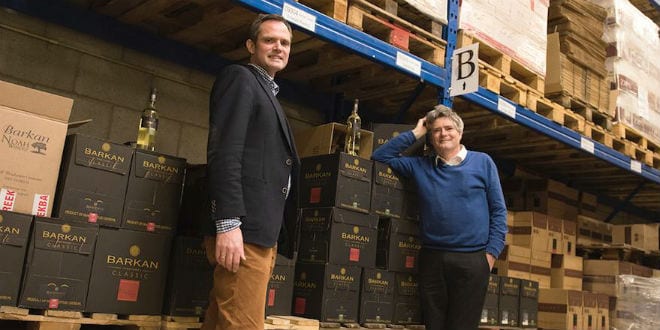For the second time in recent history, a Dutch Christian organization dedicated to supporting Israel has gone head-to-head with the government. With their family tradition of belief in Israel that preceded the state of Israel by almost one hundred years, it seems unlikely that the van Oordts are about to back down, no matter what the odds.
Last month, the Dutch Ministry of Economic Affairs and Climate Policy made a request from the management of the Israel Products Center (IPC) to ensure they were in compliance with regulations adopted in 2015 by the European Commission requiring products made by Jewish owned companies in Judea, Samaria, the Golan Heights, and sections of Jerusalem to be labeled in a manner indicating their origins.
On Wednesday, Roger van Oordt, director of the Christians for Israel group based in Nijkerk, the Netherlands, rejected their request, criticizing the regulations as being racist.
“Labeling was created to ensure food safety but has become a political tool to pressure the Jewish state,” said van Oordt. “These are anti-Jewish regulations to me. They mean separating products made by Jews and Arabs.”
The Dutch policy follows guidelines established by a European Union resolution. At the time, the Obama administration supported the resolution. The regulations are binding, but the EU and the Dutch government have limited recourse against countries and businesses that don’t implement them. There are no similar EU or Dutch regulations pertaining to labeling products from any other area of the world.
This is not the first time the IPC protested these regulations. In 2016, after the EU passed the labeling resolution, Pieter van Oordt wrote a letter to his thousands of loyal customers, arguing that the policy was prejudicial, focusing on Israel while ignoring numerous other cases of disputed territories. He accused the EU of going against the Bible by denying Israel’s Biblical right to the land and condemned the EU policy for humanitarian reasons, citing the loss of livelihood to the Jewish and Arab residents of what the EU labeled “occupied territories”.
“Regardless of the Biblical and political arguments against the decision to partition Israel in such a way, it is also inhumane. These people deserve a salary to support their families,” he wrote.
Ironically, studies have shown that such policies targeting Jewish-owned businesses in Israel adversely affect Palestinians who are employed at these businesses and receive salaries that, on the average, are more than double those received at Arab-owned businesses in the same regions.
Karel van Oordt founded the International Christians for Israel (CFI) organization and its import agency, the Israel Products Center (IPC), in 1979 to support Israel economically. The IPC imports 120,000 bottles of Israeli wine every year, as well as tons of Dead Sea cosmetics and thousands of every-day goods, such as Israeli-made cleaning detergents and Israeli snacks and foods. Now led by Karel’s sons, the Christians For Israel movement has branches and affiliates in more than 30 countries. Its import agency, which brings in shipments of Israeli products to sell worldwide, has millions of dollars in revenue.
But the IPC is not a profit-motivated business venture. Its best customers, most of them Protestant members of the Christians for Israel movement, share the van Oorts’ ideological and religious views of Israel, buying Israeli goods through a feeling of moral duty to help Jews return to their land.
The Van Oordt family has been praying for Israel since 1835 so their recent very practical support of the Jewish state should come as no surprise.
Source: Israel in the News

